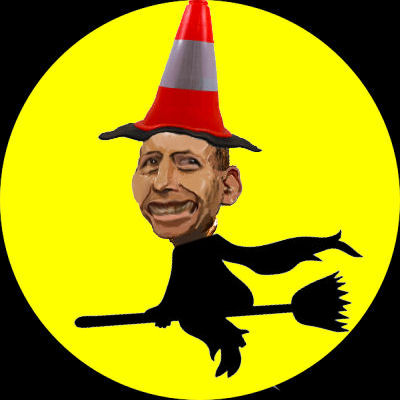 In 2005 John Howard had been Prime Minister for nearly a decade and didn't look particularly vulnerable. But then he decided to ramp up Australia's migration intake. Net overseas migration jumped from the 100,000 it had been in 2004 to over 200,000 in just a couple of years. In 2005 migration overtook natural increase as the dominant driver of population growth, and we entered an era of rapid population growth, which we are still in. Our population now increases by a million people every three years.
In 2005 John Howard had been Prime Minister for nearly a decade and didn't look particularly vulnerable. But then he decided to ramp up Australia's migration intake. Net overseas migration jumped from the 100,000 it had been in 2004 to over 200,000 in just a couple of years. In 2005 migration overtook natural increase as the dominant driver of population growth, and we entered an era of rapid population growth, which we are still in. Our population now increases by a million people every three years.
 The era of rapid population growth has also been one of great political instability. John Howard lost the 2007 election and indeed lost his own seat. His successor, Kevin Rudd, maintained and even increased net migration. When he was questioned about rapid population growth in 2009 he declared he was in favour of a Big
The era of rapid population growth has also been one of great political instability. John Howard lost the 2007 election and indeed lost his own seat. His successor, Kevin Rudd, maintained and even increased net migration. When he was questioned about rapid population growth in 2009 he declared he was in favour of a Big
Australia. His personal approval ratings had been high until that time, but then they started to fall. He was replaced by Julia Gillard in 2010.
Julia Gillard was aware of the damage that "Big Australia" had done to Kevin Rudd, and said she was not in favour of Big Australia. But she did not change the migration intake much and the problems of rapid population growth persisted. She was replaced by Kevin Rudd in 2013, and he in turn lost the 2013 election and the Liberal
Party came to power with Tony Abbott as Prime Minister. Tony Abbott maintained Australia's net migration intake at over 200,000 per annum, and rapid population growth continued.
Now just two years later Tony Abbott has been replaced by Malcolm Turnbull. Australia has been described as the democratic coup capital of the world, and our political instability has been the subject of international comment. Now of course there are many factors at work in every political setting. I acknowledge the role of Workchoices in the demise of John Howard. I acknowledge the role of internal undermining and the difficulties of managing the hung Parliament in the demise of Julia Gillard. I think that Tony Abbott made a Faustian deal with the devil by promising that there would be no cuts to health, education, or pensions when he was Opposition Leader, only to renege on these promises in the 2014 Budget.
But those factors are insufficient to explain the political instability of the past decade, especially when you see it going on at a State level too. In Victoria and Queensland we have seen right wing governments elected then defeated after just one term, with the elected Victorian Premier toppled in his first term by his own Party, just as
happened to Kevin Rudd and as has just happened to Tony Abbott.
In 2011 I gave a speech which I called the Witches’ Hats Theory of Government. Having studied a lot of countries around the world, I had come to the conclusion that countries with large and rapidly growing populations had more political instability than countries with small and relatively stable populations. I compared governing a country, with various public policy problems you have to solve, to an advanced driving course, where you have to navigate a road without knocking over strategically placed orange traffic cones known as Witches Hats. Each public policy failure -
education, unemployment, aged care, planning, represents a witches hat knocked over.
If you knock over too many Witches Hats, you fail the test, that is to say the electorate, or your party, votes you out. I noted back in 2011 that if a country was stable or only growing slowly its leaders seemed to have fewer problems, and more time to solve the problems, a more content population, and much better political longevity.
But if a country was growing rapidly, problems such as traffic congestion, housing affordability, planning disputes and infrastructure shortfalls generated political instability. It is like driving the car at great speed. Inevitably you are going to hit more hats. Infrastructure is a particular difficulty. A country or community growing at 2 per cent has double the infrastructure task of a stable community, which is why pensioners and retirees feel particularly under the pump from utility charges in a rapidly growing population.
The Abbott Government had little support from young people, who are the victims of job insecurity, housing unaffordability, and rising student debt. All of these things were made worse by rapid population growth. When the jobs at Seven Eleven and numerous other retail outlets are all going to easily exploited temporary migrant
workers, how are young Australians supposed to become financially independent and get entry level work experience?
The Abbott Government also lost the support of older people with its broken promises over cuts to education, health and pensions. It was looking to find money to deliver on Mr Abbott's promise to be the Infrastructure Prime Minister, and avoid a Witches Hat which would not have been there if our population growth had not been so rapid.
So the Witches Hats have claimed another victim. I offer the same advice to Prime Minister Turnbull and his incoming Government as I have freely offered to his predecessors. If you want to last, stop driving so fast!
Source:
The Hon Kelvin Thomson, Federal Member for Wills
Thursday 17 th September, 2015

Comments
Anonymous (not verified)
Wed, 2015-09-23 12:16
Permalink
Political instability - toppling of the growth pyramid
The recurring instability of political leadership in Australia has raised the spectre the country may be heading down the same path as Europe, according to a political historian from the University of Western Sydney. Dr David Burchell, from the UWS School of Humanities and Communication Arts, says the continuing uncertainty surrounding the Federal Liberal Party leadership, on the back of recent election results and leadership ballots across state governments, is cause for concern. "As a consequence, Western liberal democracy is starting to look moribund and even dysfunctional, summoning visions of the 1920s and 1930s", he says.
The Migration Council sees only growth, apparently ignoring the capacity of Australia to support more people. Besides more growth, the Council sees accelerated growth as the solution to a future flatlining of the Australian economy. By 2055, the Migration Council sees the Australian population at 40 million. Even at 22 million today, we are already killing koalas at an unprecedented rate because we are squeezing them out of their shrinking habitat.
Migration Council Wants Accelerated Immigration [1] | NewsBlaze Australia
There are many lobby and business groups with self-interests on their agendas, pushing for "growth". Countries with a faster rate of population growth than Australia invariably have poorer living standards and political instability. Countries with a larger population invariably have poorer environments and quality of living for their residents.
No doubt migrants are attracted to Australia for the promise of political stability, but with toppling demands of the growth pyramid, and all the disturbances of high population growth, the shine may wear thin, and then we'll be forced to pay more taxes, and less welfare, to support the unsustainable growth!
Footnote[s]
[1] Article is undated as of 23/9/15. - Ed
Anon (not verified)
Sun, 2015-09-27 14:03
Permalink
Are we selling out? (Chinese city for 80,000 in Victoria)
Eddy (not verified)
Tue, 2015-10-06 19:54
Permalink
Are We Selling Out ?
anonymous (not verified)
Tue, 2015-10-06 18:23
Permalink
Houses are not export commodities
Subject was: Trade deficit widens - Ed
Australia's trade balance has stayed in the red with a worse-than-expected deficit of $3.1 billion in August, following a revised deficit in July of $2.8 billion.
The Australian Bureau of Statistics said exports were flat, while imports rose one per cent.
Read more: Trade balance deficit widens to $3.1b in August (6/10/15) | SMH - BusinessDay
The typical forecast in a Reuters survey was for a deficit of $2.25 billion, in April, which would have already been almost twice the previous month's trade shortfall.
So, despite all the population growth, any real growth has flattened. We are importing more than what we're exporting. The trade is largely going one way. Houses, or people, are not export commodities, or exportable produce!
Add comment